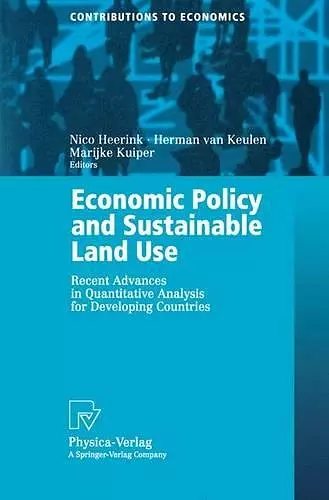Economic Policy and Sustainable Land Use
Recent Advances in Quantitative Analysis for Developing Countries
Nico Heerink editor Herman van Keulen editor Marijke Kuiper editor
Format:Paperback
Publisher:Springer-Verlag Berlin and Heidelberg GmbH & Co. KG
Currently unavailable, and unfortunately no date known when it will be back

Springer Book Archives
This is an overview of quantitative approaches to analyse the effects of economic policy reforms on sustainable land use in developing countries. It illustrates advances in modelling approaches at the plot, household, regional and national level.Since the 1980s many developing countries have implemented macro-economic policy reforms to curb inflation, reduce fiscal deficits and control foreign debt. The policy instruments used, such as exchange rate adjustment, budget cuts, trade policy reforms, public expenditure reviews and privatisation, have different and sometimes opposite consequences for agricultural land use. During the same period awareness was growing that deteriorating soil quality could become a limiting factor to increase or even sustain agricultural production. As a result, food availability and even accessibility for large population groups in developing countries may be jeopardised in the near future. Recently, quantitative models have made useful contributions to understanding the impact of economic policy reforms on the sustainability of land use. They provide a consistent analytical framework to deal with complex issues such as the direct and indirect effects of economic, agricultural, environmental and population policies, the role of market imperfections in transmitting economic policy signals, and the interactions between soil quality, agricultural production and household economic decision making. Different types of models can be distinguished: bio economic models, focussing on the link between farm household decisions and the agricultural resource base, household and village models, examining the impact of the socio-economic environment on farm household decisions, and more aggregate models, analysing interactions between sectors and their implications for sustainable land use.
ISBN: 9783790813517
Dimensions: unknown
Weight: unknown
376 pages
2001 ed.